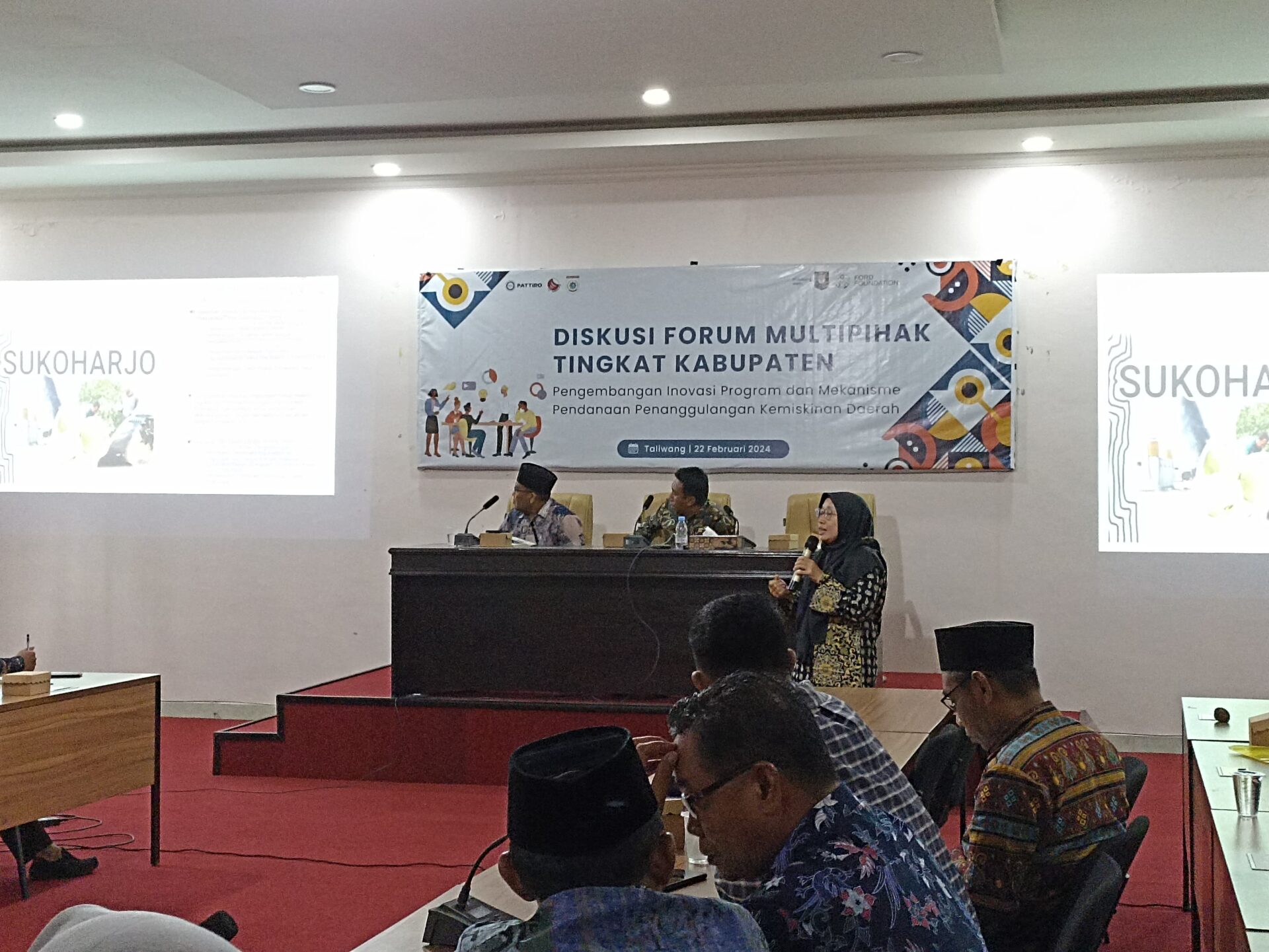 The Right to Information Regime
The Right to Information Regime
The right to information is a human right as stated in Article 19 of the Universal Declaration of Human Rights, adopted by the United Nations General Assembly on 10 December 1948. [1] Countries have ratified it in accordance with the dynamics of their internal conditions. In doing so, some have used the term Freedom of Information (FOI) such as England and the US. Other countries have used the term Right to Information (RTI) such as India and Nicaragua, whilst the Netherlands, Canada and Japan have used the term Access to Information (ATI).
Within the Universal Declaration of Human Rights, it is obvious that the right to seek and receive information is covered by the freedom of opinion and expression framework. Therefore, it is not surprising that early on, right to information was closely linked to journalism. Journalists have a direct interest to access of information. Sweden, led by Anders Chydenius in 1776, is acknowledged as the first country to enact a Freedom of Information Act.Significantly, that act focused on the freedom of press. [2]
Regulation related to freedom of access to information is generally intended to cover information that is controlled by the public authority. In order to protect personal information, several countries have, therefore, passed privacy protection acts as well. However, protection of privacy data also regulates the rights of subjects of data to access their own personal data that is controlled by the data holders.
In Canada [T1] the act address these issues is titled the Freedom of Information Act and Protection of Privacy Act. Mentioning those two facets simultaneously is intended to balance the freedom to access information against the protection of privacy. In civic life, the balance between the right to information and protection of privacy is believed to be the deciding factor in the quality of a democracy. The importance of information to democracy is such that Andrew Puddephatt (1999) stated that “[i]nformation is the oxygen of democracy.” [3]
In environmental issues, the principle of access to information was included at a global level in the “27 principles of the Rio Declaration” in 1992.[4] Under this declaration, the guarantee for access to information is known as one of the three accesses: access to information, access to participation, and access to justice. Several countries have, thus, managed access to information specifically with regards to environmental issues.
The access to information regime argues that the state is obliged to guarantee people’s access to information. The right to information is stated as a fundamental right,[5] and characteristically negative (Article 19, 2007). [6] As a negative right, any attempt to prevent someone’s access to information is considered a crime and consequently, can result in criminal sanctions.
As part of civil and political rights, fulfilment of the right to information is often seen from the perspective of social and political relations. In India, Bangladesh, Mexico, South Africa and several other countries, the existence of a Freedom of Information Act is seen as a deciding factor for the society in promoting social accountability in the public sector (World Bank, 2012). [7]
Administration Regime
The public administration regime has made efforts to regulate and to ensure access to information both from the public authorities that are not related to public services as well as those that are related to particular public services such as health, education, licensing and others. The access guarantee is applicable for information that comes from the activities of the public authority, as well as from procedures and services that can be accessed by the public (list of public information).
Unlike the right to information regime, the administration regime places access to information within the field of administrative accountability. Society’s effort to access data and information faces an internal decision-making process in public bodies. When members of society face a hindrance in accessing information, it is solved through multiple-stages of a complaint administrative scheme. In this regime, hampering access will result in administrative sanctions.
Within the administration regime, hampering access in manners that are against [T2] the law is considered a case of poor administration in governance. Several countries have mandated to solve the issue of hindrance in accessing information to public institutions through the creation of ombudsmen. The ombudsman is an independent state institution that is mandated with handling cases of poor administration.
In the hands of an administration regime, Indonesia has implemented service management schemes for the public service that have generally focused on information provision. This has resulted in an extra burden on public institutions for an administrative function that does not have a significant frequency of service, especially when compared to their main service functions.
As a result of the enactment of the Public Information Disclosure Act (UU KIP),all public institutions have now one similar service obligation, that being, the provision of information to the public. This includes all public authorities, including those that provide no direct service to society. For example, state-owned hospitals that provide the public with medical service have the same obligation to provide information services as the Coordinator Ministry that does not have a direct service function to the society.
The need for information covers quite a wide area. That is why requests are also made for all kinds of information that do not necessarily relate directly to an institution’s main functions. To ensure access to information, administration regime usually advocates a fixed procedure within the internal structure of public institutions. In practice, this has resulted in the fulfilment of the right to information in a manner similar to schemes surrounding positive rights such as social and economic rights.
Economic Regime
within contrast to the administration regime, the economic regime attempts to place as much information, which is considered as open, into the public domain as possible. This placement is intended to open access to data and information without a request scheme or approval from the public authority.
In the last three decades of the twentieth century, discussion about information as a public good has started to receive more attention in the academic literature. Whilst some scholars remain cautious and call it a quasi-public good (Hirshliefer, 1971), [8] others have explicitly stated that some information can be genuinely recognized as a public good. This is especially the case for information associated with services related to the lives of many people such as information about SARS, bird-flu, etc. (Getzen, 1997). [9]
The science of economics uses the term public goods to contrast with the term economic goods. Public goods are marked by the nonexistence of a scarcity aspect, such as air and water, whereas economic goods are marked by their relative scarcity (the scarcity of resource). Between the two exists semi-public or quasi-public goods such as clean water from PDAM. In some cases, semi-public goods have taken the form of economic goods, in part this has resulted from a policy of privatization.
The economic regime is convinced that providing access to information is also a prerequisite for obtaining an efficient allocation of public resources and fulfilment of societal needs. As an example, opening up access of paramedic dispersion data and the dispersal of expectant mothers in particular geographical areas could better assist the community in proposals for more-balanced paramedic dispersion.
Without access to that information, the community will not know if there is an accumulation of paramedics at particular health clinics, and the government will feel that it is not an issue. As public goods, their availability is a factor that affects citizens’ quality of life. It is no different to the collective road construction in plantation regions that have allowed the farmer’s production to be more efficient.
In several countries, access provision is entering a better stage through a method known as Open Data. In the governmental sector, access to data is provided in a machine-readable format that can be processed by the user without having to go through a request process first. This has allowed the local community to develop initiatives in order to improve services such as healthcare provision through collaborative schemes. [10]
In many cases, Open Data has shifted information from initially an abstract perspective into realilty as a public good regarding a diversity of things such as public roads, religious buildings and green spaces. The community has thus been able to access it and use it without submitting a request and getting approval from public authority.
In developing countries, similar efforts to provide access to data and information are still facing obstacles in the form of the availability of data that is sufficient and accurate. Obstacles are found at multiple levels from data sampling and documentation, to availability of supporting infrastructure.
***
The three perspectives above have similarities in some ways, but also different emphases. For example, it can be seen how they look at the state’s position regarding access to information. The administration regime sees it as one of the provision schemes to the public as mandated by the law. Provision of information is no more than just a form of regulation by the state to achieve a particular service purpose.
Contrastingly, the right to information regime sees information as a universal right that is inalienable. The state cannot hinder anyone receiving information as long as it does not violate other people’s right.
The economic regime sees information as a public good of the state that is non-economical and so can [T3] be accessed by anyone without any approval from the authority holder and imposition of tariffs. Provision is seen as a fulfillment of society’s collective right.
Few Critics
Transparency implementation in multiple sectors is seen as counter-productive to governance. Within a particular limit, transparency is felt as a potential threat for decision makers as a result of an increased risk (Anechiarico and Jacobs, 1996). [11] Transparency tends to show negative aspect more than success that has been achieved by the state. This often happens because the media is more likely to take a critical perspective when covering government affairs.
There are therefore several prominent critics [T4] on the ideas of Open Government, including Archon Fung, Mary Graham and Davil Weil. [12] For Fung, transparency in Open Government will inevitably increase the risk for the government. Therefore, he has suggested the idea of Targeted Transparency, that is: [13]
[p]ublic policies that compel organizations—sometimes governmental but often private sector actors—to disclose information in order to advance some specific public purpose such as improving public health, increasing product safety, or reducing risk.
Most laws that govern the right to information focus on public institutions. Targeted transparency broadens these laws to reach the private sector. Even so, the idea requires selective regulation by the State in order to publicize information that specifically fulfils a citizen’s vital interest criteria, which is information about: product and service risk, domination risk, and social externality risk. [14]
This approach is therefore different from the right to information regime that closes information selectively, based on consideration of negative consequences (negative list).. Targeted Transparency only obliges organizations to open information selectively (positive list). The selection of information is, therefore, based on whether or not there would be negative consequences or risks if said information was not disclosed.
[1] UN General Assembly Resolution 2200A (XXI), article 19: Everyone shall have the right to freedom of expression; this right shall include freedom to seek, receive and impart information and ideas of all kinds, regardless of frontiers, either orally, in writing or in print, in the form of art, or through any other media of his choice.
[2] Lihat The World’s First Freedom of Information Act, Anders Chydenius’ Legacy Today. Anders Chydenius Foundation’s Publications 2, 2006.
[3] Puddephatt, Andrew. International Guidelines Series Article 19. The Public’s Right to Know: Principles on Freedom of Information Legislation States. London, Article 19, 1999. In his introduction, Puddephatt stated that: ‘Information is the oxygen of democracy. If people do not know what is happening in their society, if the actions of those who rule them are hidden, then they cannot take a meaningful part in the affairs of that society. But information is not just a necessity for people it is an essential part of good government. Bad government needs secrecy to survive. It allows inefficiency, wastefulness and corruption to thrive’.
[4] Principle 10. Public participation: ‘Environmental issues are best handled with the participation of all concerned citizens, at the relevant level. At the national level, each individual shall have appropriate access to information concerning the environment that is held by public authorities, including information on hazardous materials and activities in their communities, and the opportunity to participate in decision-making processes. States shall facilitate and encourage public awareness and participation by making information widely available. Effective access to judicial and administrative proceedings, including redress and remedy, shall be provided.’
[5] UN General Assembly, (1946) Resolution 59 (1), 65th Plenary Meeting, December 14.
[6] Article XIX, and ADC. Access To Information: An Instrumental Right For Empowerment. London, July 2007, hal. 6
[7] Lihat Alaka, Dena Ringold, at all. Assessing the Use of Social Accountability Approaches in the Human Development Sectors. Washington, The World Bank, 2012.
[8] Hirshliefer, Jack. The Private and Social Value of Information and the Reward of Inventive Activity. American Economic Review v. 61, no. 4. September 1971, pp. 561-574
[9] Getzen, T,E. Health Economics: Fundamentals and Flow of Funds. John Wiley and Sons, Inc. New York. 1997.
[10] U.S. Department of Health and Human Services. The Community as a Learning System: Using Local Data To Improve Local Health. A Report of the National Committee on Vital and Health Statistics. 2012
[11] Anechiarico, F. and Jacobs, J. The Pursuit of Absolute Integrity: How Corruption Control Makes Government Ineffective. University of Chicago Press, Chicago, 1996. pp: 174–176
[12] Archon Fung, Mary Graham and David Weil. Full Disclosure: The Perils and Promise of Tranparency. Cambridege University Press, New York, 2007.
[13] Fung, Archon. Infotopia: Unleashing the Democratic Power of Transparency. Politics & Society, 41, SAGE Publication, 2013, p: 189
[14] ibid. p: 193.




